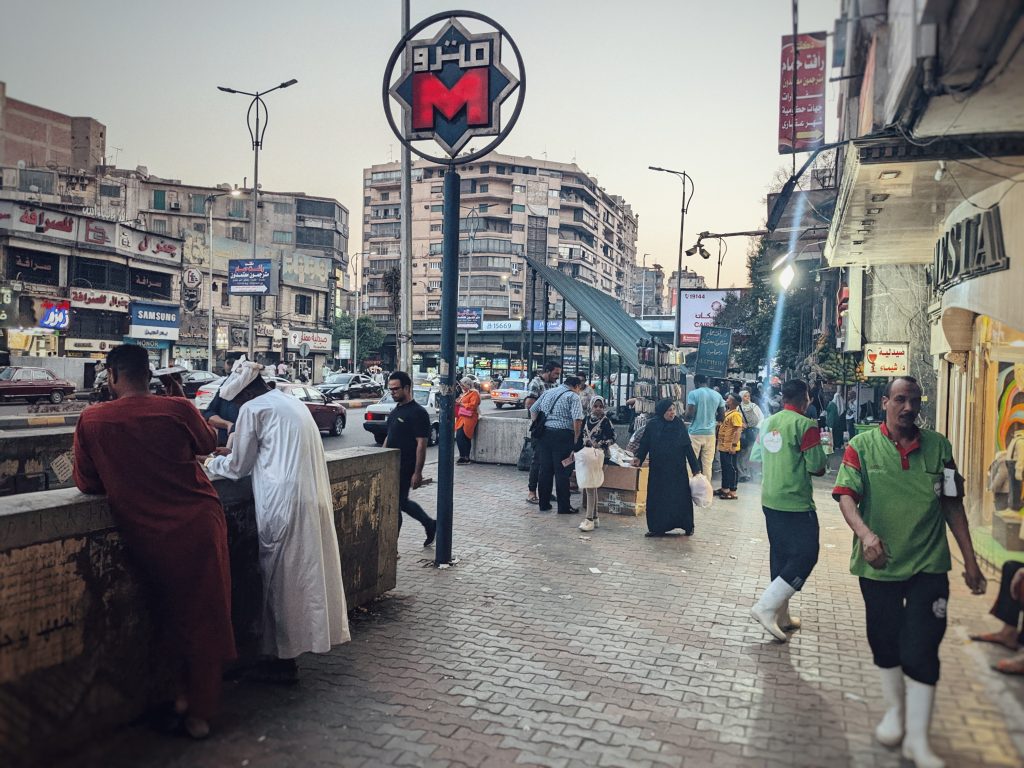Hurriedly looking down at my feet as I try not to trip on the stairs out of Doqqi Metro station or over a makeshift stall on the ground encroaching into an ever-narrowing passage into the open air, something stood out to me—almost all the men were wearing sandals. Looking up as I emerged out of the metro in Doqqi, it started to make sense as some were wearing ankle-length dishdashas and waistcoats and others in jeans and t-shirts answered their phones and called out to friends in an Arabic dialect that sounded unfamiliar to my untrained ears. This unfamiliar Arabic dialect was Yemeni, and those calling out to their friends were among the million or so Yemenis that call Cairo home, many of which reside or work in Cairo’s Little Yemen.
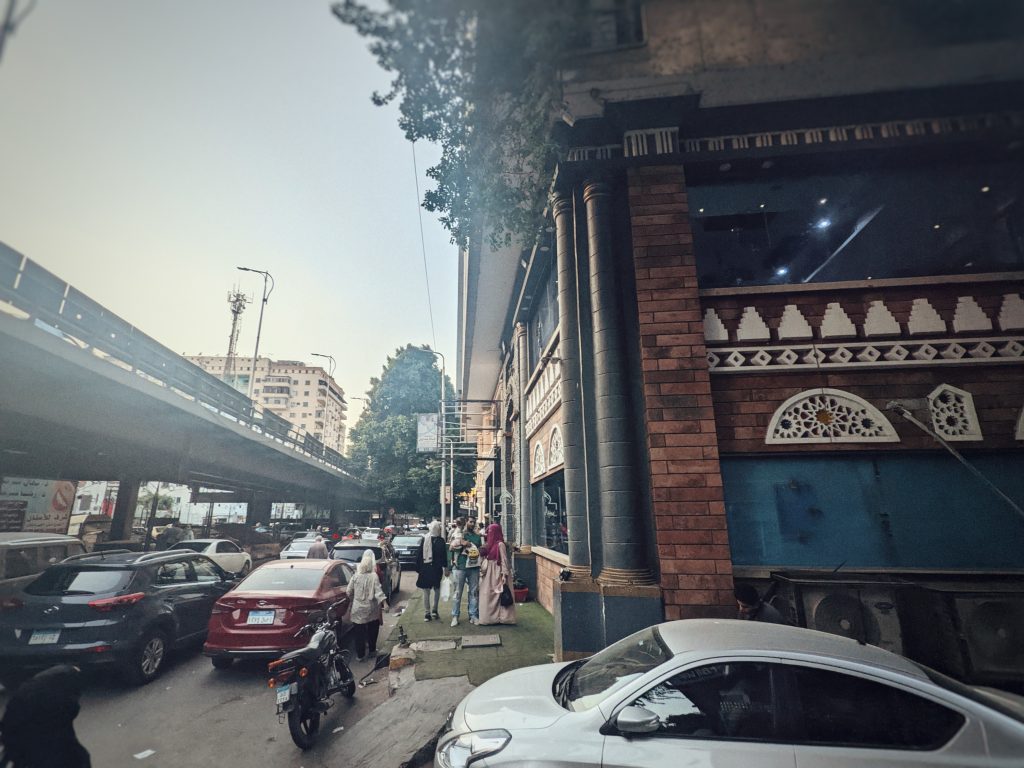
Some of the population of Cairo’s Little Yemen can trace back to their families moving to Cairo centuries ago, attracted to Cairo’s historic standing as one of the region’s main cosmopolitan hubs for trade, science, education, and the arts, which attracted Arabs from all across the region. More recently, several other much larger influxes of Yemenis to the Egyptian capital instead tell the depressing story of exile and war, with much of Cairo’s Little Yemen having come to Egypt following the North Yemen Civil War, which ended in 1970, and more recently with the tragic Yemeni Civil War, which has caused heartbreak and destruction since 2014.
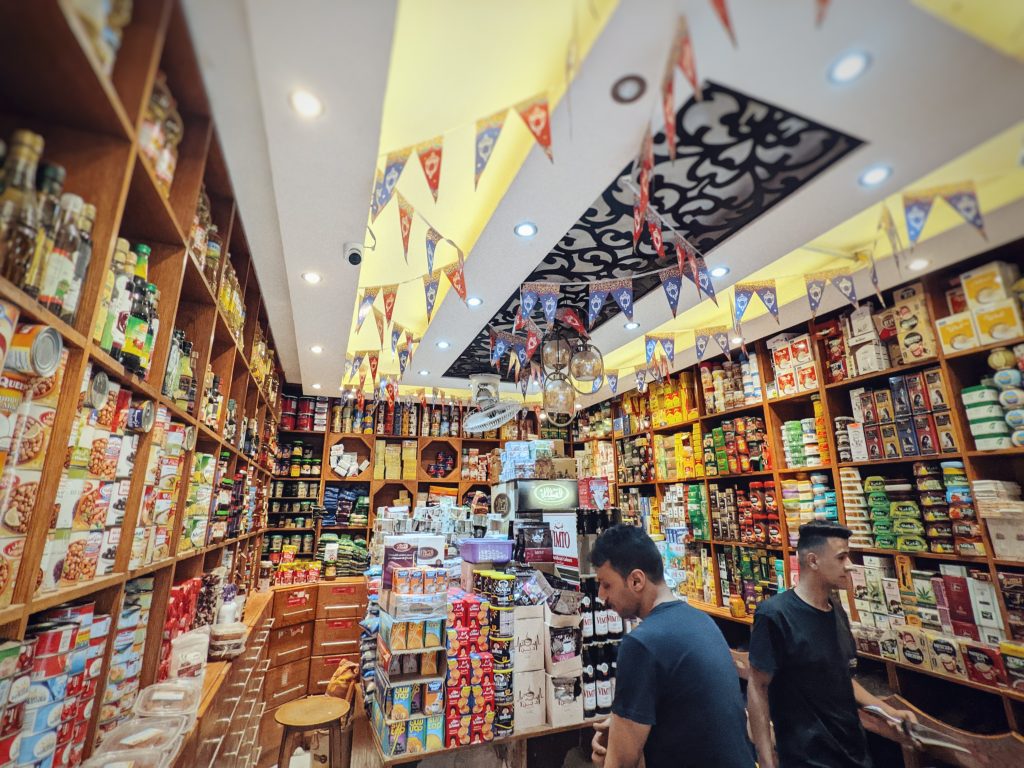
Concentrated underneath the El Doqqi Bridge on El Doqqi Sreet and spreading outwards along Iran Street and Soliman Gawhar Street and their side streets, Cairo’s Little Yemen was established relatively recently in the 1990s. While Yemenis can be found across Cairo, and other Yemeni neighborhoods exist in Manial and parts of Giza, the area that has become to be known as Little Yemen has very much become the culinary and cultural hub of Cairo’s Yemeni community. With Yemeni restaurants and cafes serving Yemeni specialties, small Yemeni supermarkets and spice shops selling Yemeni products, a Yemeni school teaching the country’s curriculum, an old bar frequented almost entirely by Yemenis, and even a local artist that paints and displays Yemeni political figures; Cairo’s Little Yemen is a unique and culturally rich part of the country that is a joy to explore.
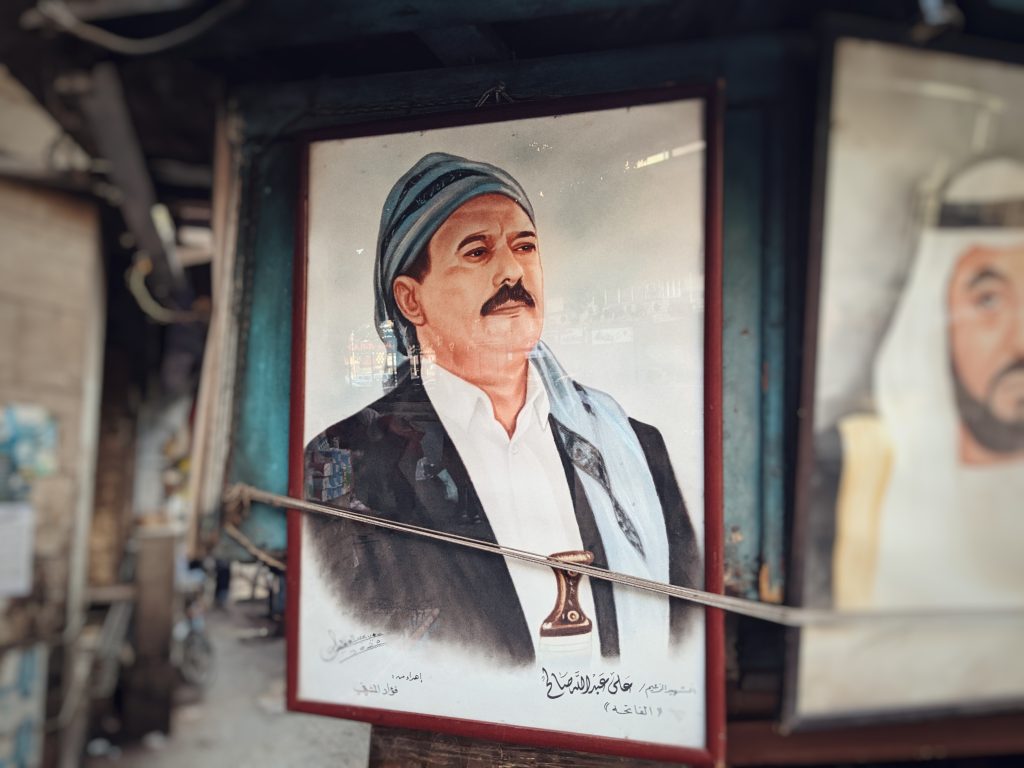
Straight out of the metro, I walked around the corner and under the noisy El Doqqi bridge passing above in search of some Yemeni food. Having visited some of these restaurants several years ago, I’ve been endlessly boring friends by telling them how good Yemeni food and how they must go to Cairo’s Little Yemen. However, in the year since I last ventured out to the area for the sole purpose of quenching my hunger for Yemeni food, many more Yemeni restaurants have popped up along this street. With several cheap eateries overflowing with customers and the smells from the kitchen alongside newer more upmarket places, it was clear that these restaurants do not only serve the local Yemeni community but Cairenes from across the city increasingly coming to the area for the food.
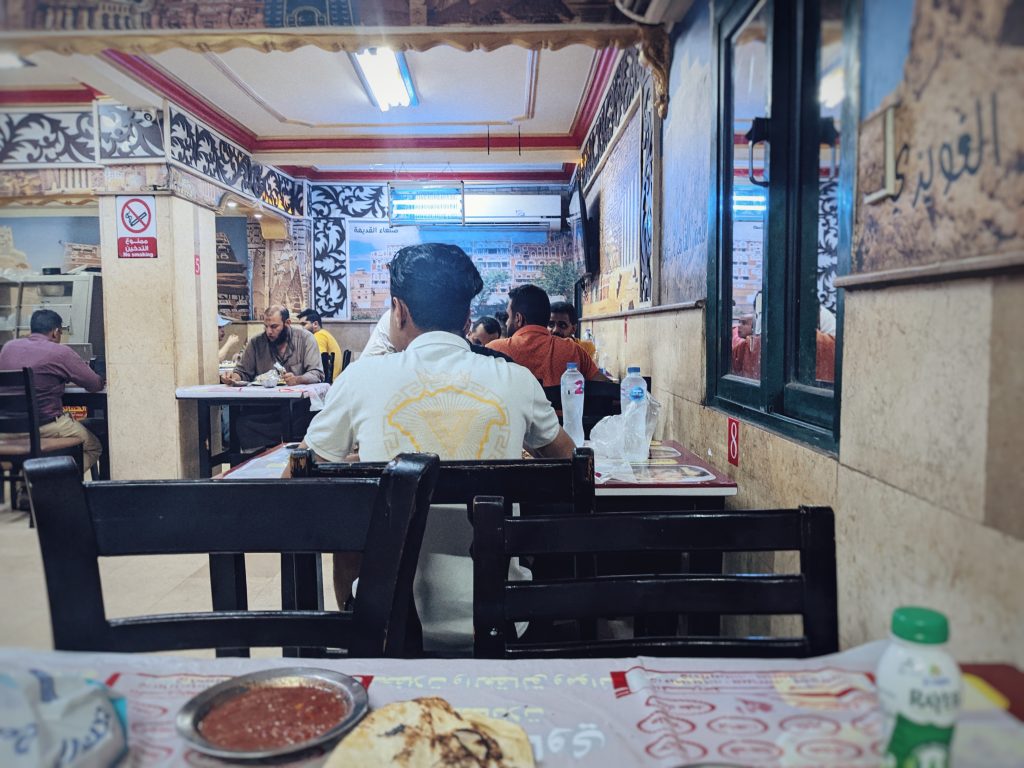
I returned to one of the restaurants I’ve grown fond of, and after being greeted by the ever-welcoming staff, I sat down eager to order as soon as possible. Searching through the menu, there was barely anything I recognized, but like many previous times at this restaurant, I have always found that by asking the waiter for recommendations and even just picking at random, I’ve never been disappointed. This time, however, as the waiter looked over the menu for a good recommendation for me after asking about the kind of food I like, his first suggestion was immediately cut down by another waiter passing by. Insisting that I try another dish, the two then went back and forth on what dish I should order, expressing a surprising dedication to non-Yemenis getting the best introduction to the country’s cuisine and pride in their national identity.
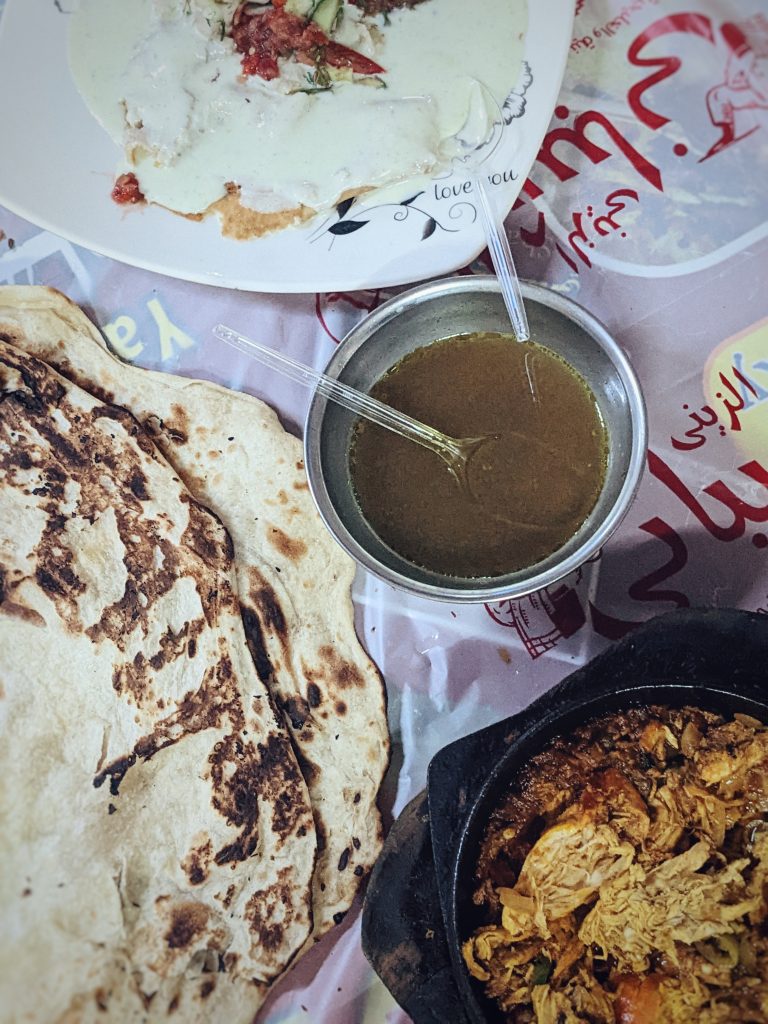
One of the dishes they settled on was one of Yemen’s most famous dishes, called fahsa, consisting of stewed meat spiced just the right amount to bring out the flavor and not overpower the flavor of the meat itself. Although unmistakably Arab, Yemeni cuisine’s Iranian and Indian influences are apparent in every bite and give Yemeni food its one-of-a-kind taste, a reflection of the country’s distinctive historical positioning as the gateway connecting the Arab world with India and Iran through its ports. The way of eating Yemeni food is also a great way to enjoy the food, especially in groups. With groups of people around various dishes and some Yemeni flatbread in hand, every table was dipping in and out the dishes and mixing flavors mid-conversation.
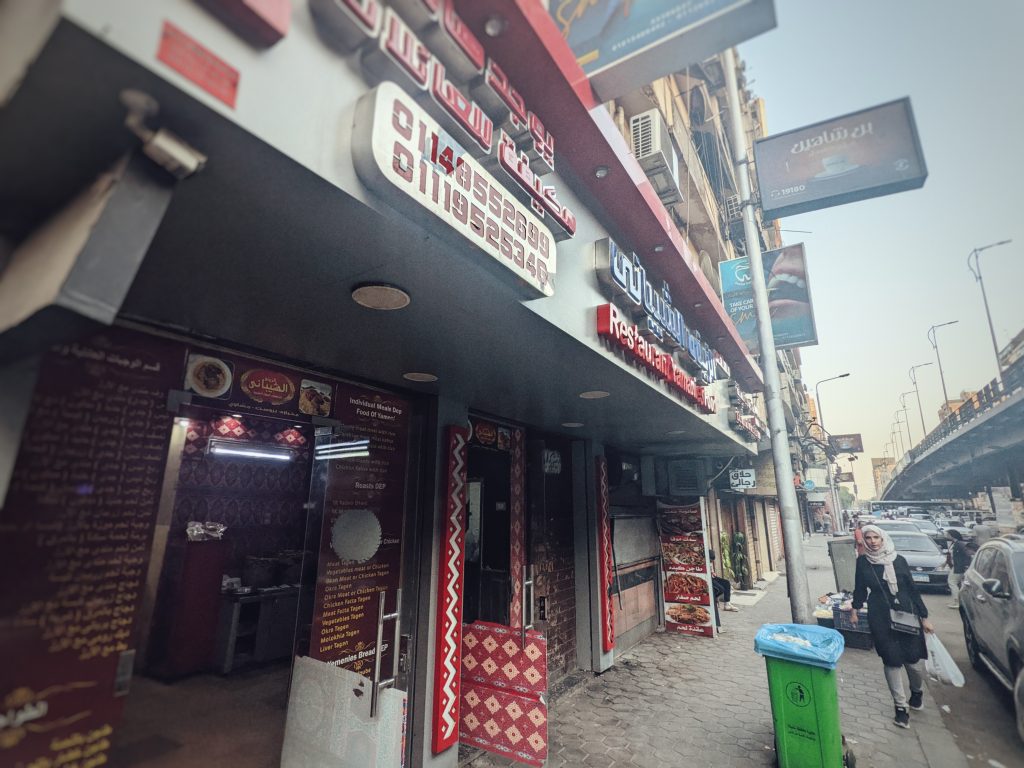
After eating far more than I needed, I awaited the bill worrying about how many things I had ordered and if I’d have to run to a cash point if the few notes in my wallet couldn’t cover it. To my surprise, this generously portioned and delicious meal with expensive ingredients like meat and yogurt turned out to be one of the cheapest proper meals I had in Cairo for years. Now waddling from the amount of food I had gorged on, I explored this once-familiar street further to find even more Yemeni restaurants that had recently opened. Two of them had even styled their facades to look like the country’s iconic mud-brick buildings and inside were fancy up-market restaurants, perhaps indicating how Yemeni food, and this area in particular has increasingly become somewhere people come from all over the city to eat, not unlike Chinatowns in many Western cities.
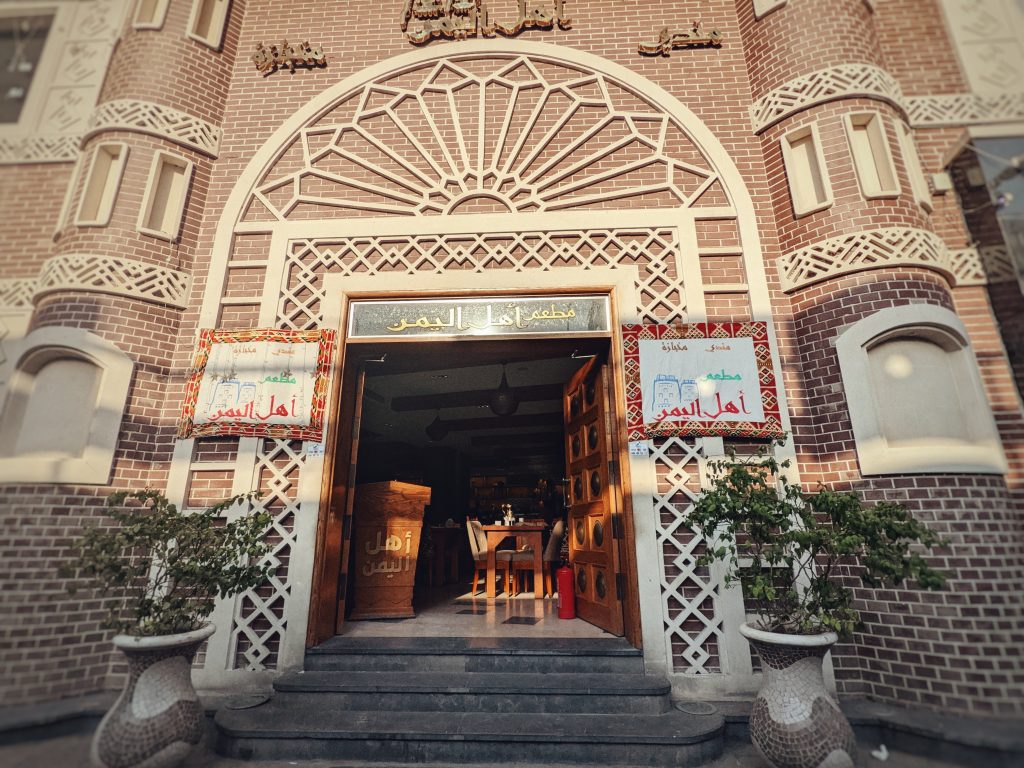
Further down some side streets, I came across small Yemeni supermarkets and spice shops selling Yemeni produce. After looking through the racks of unfamiliar Yemeni products, I was surprised to hear how expensive many of these imports were. The shopkeeper explained to me that the high prices of Yemeni products were a result of the continuing conflict in the country that had created shortages and extreme difficulties for Yemeni companies trying to produce food and export products.
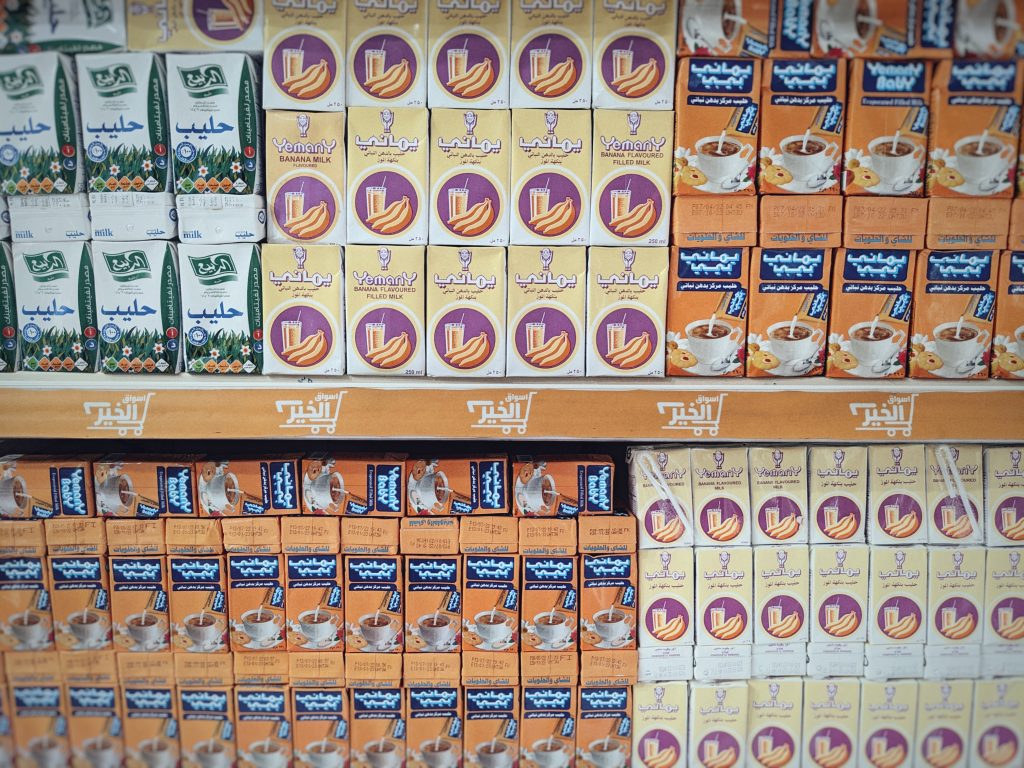
Reflecting on why so many Yemenis in Cairo continue to pay the ever-increasing prices for cartons of Yemeni banana-flavored milk and the iconic Abu Walad biscuits, the shopkeeper told me that it wasn’t just about the taste or quality of the products. Indicating to an elderly Yemeni man who had just grabbed a box of Abu Walad pockets and speculated that he will probably share them with his grandchildren, he told me how these biscuits for the young and old give them a taste of home.

WE SAID THIS: Don’t Miss… 10 Things You Probably Didn’t Know About Yemen


